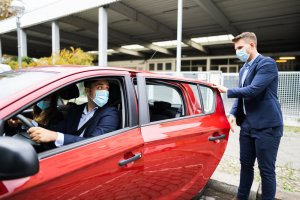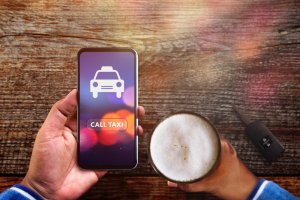Are Ride-Sharing Services a Convenient Excuse to Binge Drink?
For the last decade, the popularity of ride-sharing apps, such as Uber and Lift, has grown exponentially. According to Pew Research, roughly 36% of American adults had used a ride-hailing app by 2019, compared to only 15% in 2015. The apps are also uniquely popular among young people. The same study noted that over 50% of users were individuals aged 18 to 29. However, while ride-sharing apps have revolutionized metro transportation, there may be a hidden cost for the modern convenience.
A newly released study conducted by the University of Michigan has shown that ride-sharing apps may be associated with higher rates of binge drinking. Until this study, most research focused on the correlation between ride-sharing apps and drunk driving. Unsurprisingly, these studies indicated that ride-sharing services reduced instances of DWIs, accidents, and deaths. Cost-effective and convenient, these apps seem to make our streets safer, and that’s wonderful news. However, this convenience may also promote a level of permissiveness.
The Association Between Binge Drinking and Ride-Sharing Apps
Collecting data from 2010 to 2016, researchers looked at the drinking habits of individuals in 113 metro areas. They specifically looked at individuals who engaged in binge drinking within the last 30 days. The researchers then cross-referenced binge drinking behaviors in markets after Uber was introduced. Although the findings showed that people didn’t drink more frequently after the service was introduced, the data did indicate that people tended to consume more when they did drink. Overall, the study indicated a 4% increase in binge drinking after Uber was introduced.
It’s common sense to assume this increase reflects an individual’s ability to drink without worrying about driving. Not having to worry about the exorbitant cost and inconvenience of traditional taxis may also factor in. So, although ride-sharing services promote safer drinking in terms of driving, an individual may consciously (or unconsciously) feel liberated to unsafely drink more using the app.
At first glance, a 4% increase in binge drinking may not seem too alarming. However, it’s important to remember the aforementioned statistics regarding the growing popularity of ride-sharing apps. In 2015, only 15% of the population had used a ride-sharing service. Most of the binge drinking data was collected in 2016. However, if the popularity of the apps – more than doubling from 2015 and 2019 – and its correlation with binge drinking was extrapolated, then this 4% is much, much higher today.
Ride-Sharing Services, Binge Drinking & Young Adults
Another unsettling correlation between ride-sharing apps and binge drinking is the demographics. As stated, over 50% of ride-sharing users in 2019 were between the ages of 18 and 29. In 2015, while researchers were collected data on binge drinking, this age group also represented almost half of all binge drinkers, according to the Centers for Disease Control and Prevention. In other words, if young adults are more likely to binge drink and use a ride-sharing app, then the correlation between the two unproportionally reflects the drinking habits of young adults.
While the positive effects of ride-sharing services on driving-related incidents is great, binge drinking is still unsafe and unhealthy. According to the Alcohol-Related Health Impact application, excessive alcohol use was responsible for an average of 95,000 annual deaths between 2011 and 2015. Nearly half of these deaths were a result of binge drinking.
While ride-sharing services are convenient and cost-effective, their usage shouldn’t equate to unhealthier drinking habits. The frequency and severity of binge drinking often increase over time and, in some cases, quietly evolves into full-blown dependency.
For most of us, we don’t need a catalyst for drinking more and more often. Although ride-sharing apps may provide the freedom to drink, it’s important that no circumstance threatens your freedom to stop drinking. If you or a loved one is unable to moderate their drinking, consider seeking professional alcohol treatment on an outpatient or inpatient basis.
